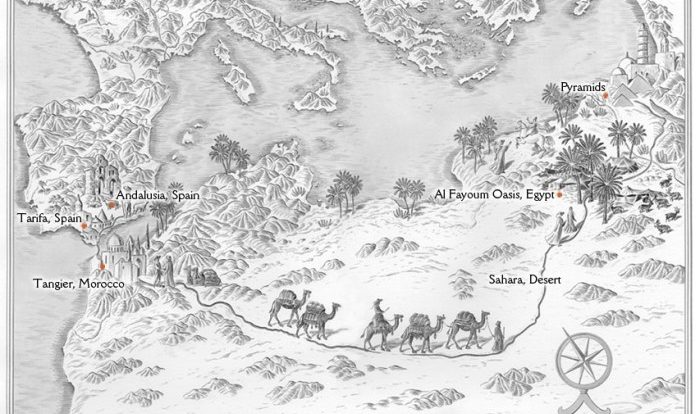Frankenstein has one crossword answer, a cryptic clue that has puzzled solvers for years. This enigmatic phrase, rooted in the iconic novel by Mary Shelley, has spawned countless interpretations and remains a testament to the enduring power of the Frankenstein mythos.
The novel, a Gothic masterpiece, explores the hubris of scientific ambition, the nature of good and evil, and the profound impact of society on the individual. Its central figure, the monstrous creation of Victor Frankenstein, has become a symbol of both fear and compassion, inspiring countless adaptations and interpretations across various media.
History of Frankenstein
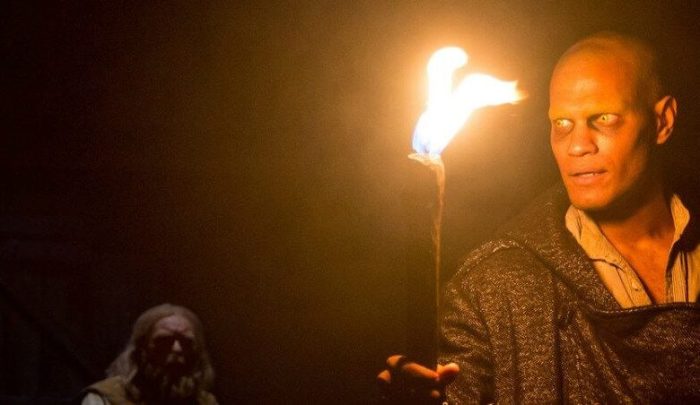
The name “Frankenstein” is derived from the surname of the novel’s creator, Mary Shelley. Her husband, Percy Bysshe Shelley, suggested the name after they visited the ruins of Frankenstein Castle in Germany.
Mary Shelley’s novel, “Frankenstein; or, The Modern Prometheus,” was published in 1818. It tells the story of Victor Frankenstein, a young scientist who creates a living creature from body parts of the dead. The creature, often referred to as Frankenstein’s monster, is initially benevolent but becomes vengeful after being rejected by society.
Cultural Impact
Frankenstein has had a profound impact on popular culture. The novel has been adapted into numerous films, television shows, and stage plays. The monster has become an iconic figure, representing both the dangers of scientific hubris and the alienation of outsiders.
Frankenstein has also inspired countless works of art, literature, and music. The novel’s themes of creation, destruction, and the nature of humanity continue to resonate with audiences today.
Themes in Frankenstein
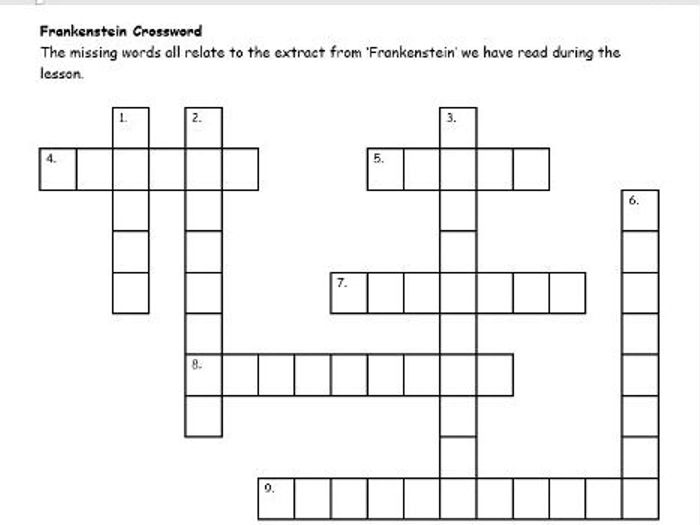
Mary Shelley’s Frankensteinis a complex and thought-provoking novel that explores a range of profound themes. These include the dangers of scientific hubris, the nature of good and evil, and the role of society in shaping individuals.
The Dangers of Scientific Hubris
One of the central themes of Frankensteinis the danger of scientific hubris. Victor Frankenstein, the novel’s protagonist, is a brilliant but arrogant scientist who believes that he can create life itself. In his pursuit of knowledge, he oversteps the bounds of what is morally acceptable and creates a monster that ultimately destroys him.
Shelley’s novel serves as a warning against the dangers of scientific hubris. It shows that even the most well-intentioned scientists can be blinded by their own ambition and that the pursuit of knowledge can have unintended and disastrous consequences.
The Nature of Good and Evil
Another major theme in Frankensteinis the nature of good and evil. The novel explores the idea that good and evil are not always clearly defined and that even the most virtuous people can be capable of great evil.
Victor Frankenstein is a complex character who is both good and evil. He is a brilliant scientist who is driven by a desire to create life, but he is also arrogant and reckless. His actions ultimately lead to the creation of the monster, which wreaks havoc on the lives of those around him.
The monster is also a complex character. He is a creature who is innocent and善良at heart, but he is also capable of great violence. He is a victim of Victor Frankenstein’s hubris, but he is also responsible for his own actions.
The Role of Society in Shaping Individuals
The third major theme in Frankensteinis the role of society in shaping individuals. The novel shows how society can both nurture and corrupt individuals.
Victor Frankenstein is a product of his society. He is raised in a wealthy and privileged family, and he is educated at the finest schools. However, he is also exposed to the dark side of society. He witnesses the horrors of war and the poverty of the working class.
These experiences shape his character and ultimately lead him to create the monster.
The monster is also a product of society. He is created by Victor Frankenstein, but he is also shaped by the way that society treats him. He is rejected and feared by everyone he meets, and this leads him to become violent and vengeful.
Characters in Frankenstein
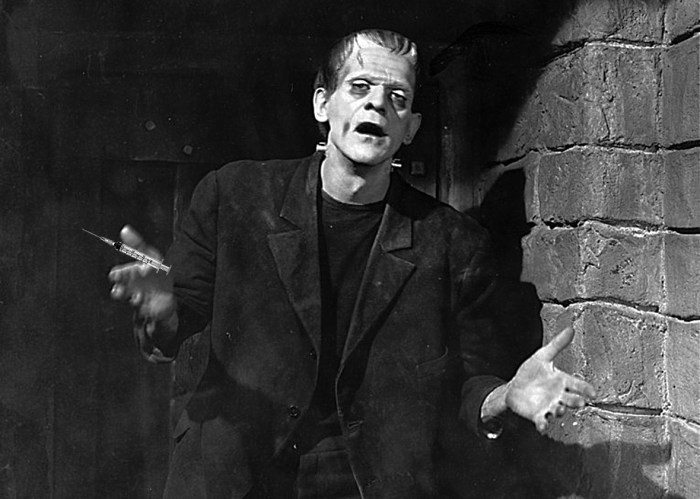
Mary Shelley’s Frankensteinfeatures a complex cast of characters who represent different aspects of human nature. The novel’s protagonist, Victor Frankenstein, is a brilliant but arrogant scientist who creates a monstrous creature that ultimately destroys him. The monster, a symbol of humanity’s fears and prejudices, is a tragic figure who longs for acceptance but is rejected by society.
Victor Frankenstein
Victor Frankenstein is a brilliant but flawed scientist. He is driven by a desire for knowledge and power, but he does not consider the consequences of his actions. He creates the monster in a moment of hubris, but he soon realizes that he has created a being that he cannot control.
Frankenstein’s arrogance and lack of foresight lead to his own downfall.
The Monster, Frankenstein has one crossword answer
The monster is one of the most iconic figures in literature. He is a symbol of humanity’s fears and prejudices. He is a grotesque and frightening creature, but he is also a tragic figure. He longs for acceptance and love, but he is rejected by society because of his appearance.
The monster’s experiences reflect the ways in which society often ostracizes and dehumanizes those who are different.
Elizabeth Lavenza
Elizabeth Lavenza is Victor Frankenstein’s cousin and adopted sister. She is a kind and compassionate woman who represents the ideal of female virtue. Elizabeth is the one person who truly loves Victor, but she is unable to save him from his own destructive impulses.
Elizabeth’s death at the hands of the monster is a symbol of the tragic consequences of Victor’s actions.
Adaptations of Frankenstein: Frankenstein Has One Crossword Answer
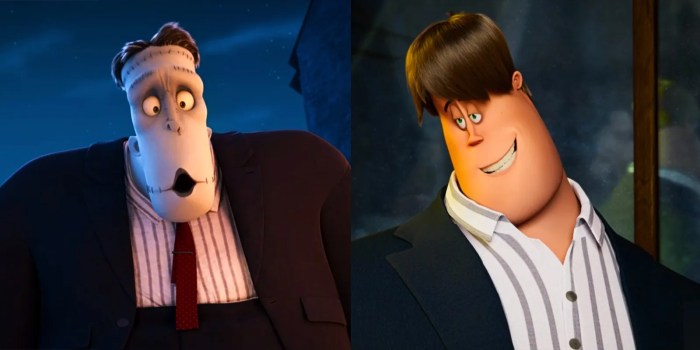
Mary Shelley’s Frankensteinhas been adapted into numerous films, television shows, and stage productions since its initial publication in 1818. These adaptations have varied widely in their interpretations of the novel’s themes and characters, reflecting the changing cultural and social contexts in which they were created.
One of the most enduring themes in Frankensteinis the tension between science and ethics. This theme is explored in many adaptations, such as James Whale’s 1931 film Frankenstein, which depicts Victor Frankenstein as a brilliant but reckless scientist who creates a monster that ultimately destroys him.
Other adaptations, such as Kenneth Branagh’s 1994 film Mary Shelley’s Frankenstein, explore the ethical implications of scientific experimentation more explicitly, raising questions about the limits of human knowledge and the responsibility of scientists for their creations.
Another important theme in Frankensteinis the nature of identity. The monster is a complex and sympathetic character, and his struggle to find his place in the world has resonated with audiences for centuries. Adaptations such as Guillermo del Toro’s 2004 film Hellboyand Danny Boyle’s 2011 film 127 Hoursexplore the monster’s search for identity and belonging, while also examining the prejudices and fears that society has towards those who are different.
The adaptations of Frankensteinhave had a significant impact on the enduring legacy of the novel. They have helped to popularize the story and its themes, and they have introduced new generations of readers to the work. In addition, the adaptations have influenced other works of art and culture, such as films, television shows, and video games.
As a result, Frankensteincontinues to be one of the most influential and enduring works of literature in the world.
Film Adaptations
- Frankenstein(1910)
- Frankenstein(1931)
- Son of Frankenstein(1939)
- The Curse of Frankenstein(1957)
- Frankenstein Created Woman(1967)
- Mary Shelley’s Frankenstein(1994)
- I, Frankenstein(2014)
Television Adaptations
- Frankenstein(1958)
- The Munsters(1964-1966)
- Frankenstein: The True Story(1973)
- Penny Dreadful(2014-2016)
Stage Productions
- Frankenstein(1823)
- Frankenstein(1927)
- Frankenstein: A New Musical(2011)
- Frankenstein: The Modern Prometheus(2018)
Frankenstein in Modern Culture
Frankenstein continues to permeate popular culture, influencing literature, film, art, and music. Its themes of creation, identity, and the dangers of scientific advancement resonate with contemporary audiences, inspiring numerous adaptations and interpretations.
Literary Adaptations
The novel has been adapted into countless works of fiction, including:
- Mary Shelley’s original novel, first published in 1818.
- Bram Stoker’s Dracula (1897), which features a character based on Frankenstein’s monster.
- Margaret Atwood’s MaddAddam trilogy (2003-2013), which explores the ethical implications of genetic engineering.
Film Adaptations
Frankenstein has been adapted into numerous films, including:
- James Whale’s classic 1931 film, starring Boris Karloff as the monster.
- Kenneth Branagh’s 1994 adaptation, which stars Robert De Niro as the monster and Kenneth Branagh as Victor Frankenstein.
- Paul McGuigan’s 2004 film, I, Frankenstein, which features a modern-day retelling of the story.
Art and Music
Frankenstein has also inspired works of art and music, including:
- Francisco Goya’s painting, “Saturn Devouring His Son” (1819-1823), which some believe depicts the monster’s creation.
- The album “Frankenstein” (1973) by Edgar Winter Group, which features a song inspired by the novel.
- The opera “Frankenstein” (1996) by Mark Adamo, which premiered at the San Francisco Opera.
Reasons for Enduring Relevance
Frankenstein’s enduring relevance stems from its timeless themes and characters. The novel explores fundamental questions about human nature, the limits of science, and the consequences of unchecked ambition. Its characters, particularly the monster, have become iconic symbols of alienation, longing, and the search for identity.
Commonly Asked Questions
What is the significance of the monster in Frankenstein?
The monster represents the consequences of unchecked ambition and the societal rejection of difference. It also embodies the theme of duality, as it is both a product of human ingenuity and a symbol of fear and isolation.
How has Frankenstein influenced popular culture?
Frankenstein has had a profound impact on literature, film, television, and art. Its themes and characters have been reinterpreted and adapted countless times, shaping our collective understanding of monsters, science, and the human condition.
